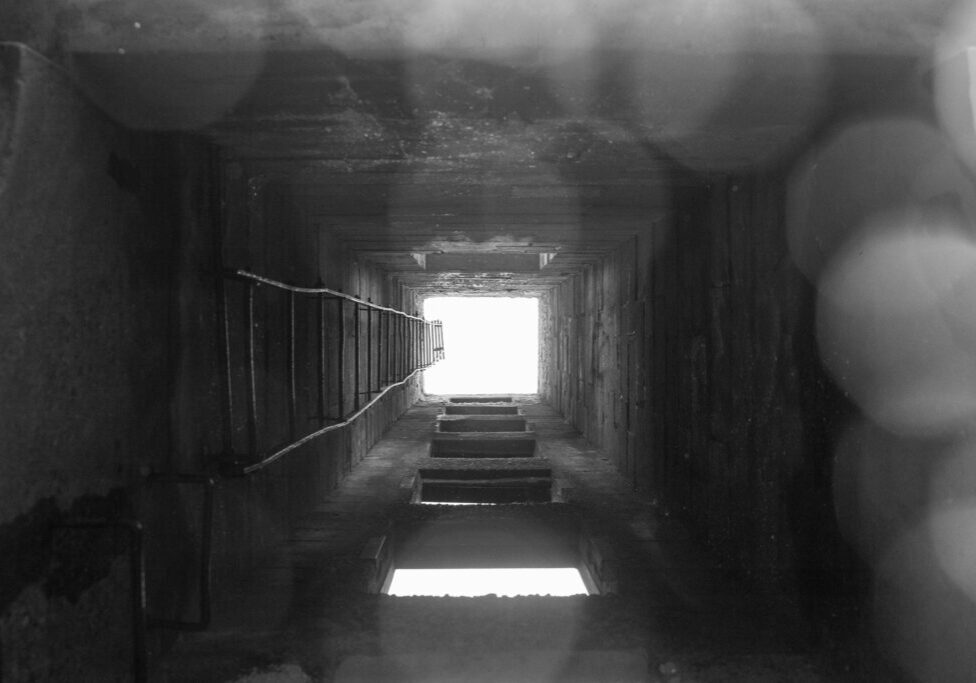Untangling the Whys

“Why?” is a child’s favorite question to ask. I have three kids, ages five to ten, and can attest that this is true. With my youngest, her whys are pretty simple. Why can’t I have twenty cookies? Why do I have to go to bed? But as my children have grown, so too has the complexity of their questions. Their inquisitions often lead me to online searches because I actually don’t know why you can’t lick your own elbow or why we get hiccups. Fortunately for me, Siri offers up a quick and thorough answer to most of my kids’ questions. We are left to wonder no more.
If only the questions that arise in adulthood had such simple answers. Why does life have to be so hard? Why can’t he or she just … [fill in the blank]? Why do I do, or say, or think the things that I desperately wish I didn’t do, or say, or think? Why can’t I be more ‘this’ or less ‘that’? Siri has no satisfiable answers for questions like these.
Not only do our whys become harder to answer, but oftentimes, they can become harder to ask. This is especially true for those of us who call ourselves Christians. It can feel like asking God “Why?” is an indicator of weak faith. Shouldn’t we just trust? Are we even allowed to ask? Have we forgotten how the Lord put Job in his place when Job was trying to make sense of the tragedy that had befallen him? “Brace yourself like a man,” the Lord said to Job. “I will question you, and you shall answer me.”1 For years, I have withheld my whys because I wish not for the Almighty to reign down upon me a reminder of His rightful authority and power to do whatever He sees fit. That’s the thing, though. I know the authority is His, not mine. But it still doesn’t answer the question of why things – particularly terrible things – happen.
When tragedy comes, some may attempt to comfort us with paltry platitudes, which often hurt more than they help. Yes, God has a plan, but that doesn’t erase the anguish of loss or trauma. Of course, there are commentaries about how suffering contributes to sanctification. There are plenty of postulations about the purpose of our pain. But when actual suffering arrives tangibly on your doorstep, an exposition on the benefits of suffering doesn’t provide much consolation. Then there are scriptures such as “[God’s] thoughts are not [our] thoughts, neither are [His] ways [our] ways…[His] ways are higher than [our] ways.”2 Yes, this is true, but when catastrophe comes – when our world falls apart – a simple reminder that God is in charge can actually worsen our pain. He could have prevented our heartache, but willingly chose not to. What are we to do with that?
Lately, this singular question of why has been tumbling around in my soul like a damp load of laundry that refuses to dry. It began with shock, turned to deep sadness, morphed into anger, and has settled into utter confusion. In less than a year’s time, I have watched in horror and sadness as multiple friends have experienced every parent’s worst nightmare: the loss of a child. Vibrant, young children were gone in an instant, taken away with no warning at all. My friend’s perfectly healthy five-year-old daughter died when her heart suddenly stopped on New Year’s Eve. My other friends’ sweet nine-year-old son was killed during a school shooting. How do I reconcile that the kind and gracious God who gave my friends these precious children is the same God who allowed them to be taken away so suddenly? What could possibly explain why God would permit such tragedies? Am I to wrap a God-knows-best bow around such an inexplicable loss or sputter off a piercing platitude that He must have a plan? I mean, I do believe that God knows things we don’t, that He is sovereign and good; but, reminding myself of these truths still seems to bypass the question that my soul won’t stop asking: Why?
Whether it’s a funeral, a diagnosis, or a betrayal, when the unimaginable happens, we ask, “How could this happen?” or “Where is God?” What we really mean is, “Why?” While we might be afraid to form the words on our lips, it is in our heads. Does asking this question indicate our lack of faith?
David himself begins Psalm 22 with a why question of a similar nature, “My God, my God, why have you forsaken me?”3 This question is the very same one that Jesus asks from the cross moments before He is crucified. So then, if Jesus, a man without sin, poses this question to God, then it cannot be wrong for us to ask it ourselves. Even in His most desperate moment, as Christ takes the sin of the world upon Himself, He models for us that it is not wrong to ask why.
So, for these last ten months, I have allowed myself to ask the question. My confusion, heartache, and questions are not only permitted by God, but welcomed. To pledge my unwavering trust in an all-knowing and sovereign God and then ignore the confusion that tugs at my heart amidst deep despair is denial and dishonesty. It only distances me from the One who is inviting me to come honestly before Him. When our souls cry out “My God, my God, why?” there is an invitation to draw near to God with our questions and know we are not condemned in our confusion. We are safe and secure in the unconditional love of the Father who knows our understanding is limited and comforts the brokenhearted.
As I watch my friends walk through the devastation of their deep loss, I begin to recognize a familiarity of their heartache. A grieving mother… A father burying his son… Innocent life taken at a young age… Mary grieved as Jesus was crucified. God saw His own Son buried. They witnessed what appeared to be the hopeless end. God hasn’t exempted Himself from the anguish we experience. He knows it full well.
My friends have experienced the unthinkable, and their grief is very real. No one can deny their raw agony. And, at the same time, without dismissing the palpable pain of such a heartbreaking loss, we already know the rest of the story. We await with anticipation for Easter to come. Easter is the reminder that while Psalm 22 begins with “My God, my God, why have you forsaken me?”, it ends with a resolution that provides, not a tidy answer to any of our specific questions, but an answer to the larger question at hand. It offers a final answer.
David ends Psalm 22 with this proclamation: He has done it.
Some of the last words Jesus utters before His death sound remarkably similar: It is finished.
So, have I found answers to my why questions? No, I have not. It seems the more I try to untangle why, the more knots appear. It is like trying to straighten out a knotted-up necklace. My efforts leave me frustrated, confused, and humbled. But what I have found is the freedom to come before God with my honest questions, with my hardest whys, with my most raw confusion. While the answers are not straightforward, I can still, just as Hebrews 4:16 tells us, “approach God’s throne of grace with confidence, so that we may receive mercy and find grace to help us in our time of need.” Because even though I can’t untangle the mess of my whys, I can trust the One who sees and understands more than I do and rest in the one thing I do know: It is finished.
A Psalm for Untangling the Whys
(Inspired by Psalm 22)
Why, God?
Why would you allow this to happen?
Do you hear my cries of anguish? Do you care?
Please tell me why!
Time and time again, You have shown Your faithfulness.
But this. How am I to make sense of it?
The more I try to find answers to my questions,
It only seems to add more knots to an already jumbled-up tangle of a mess.
What is the plan? What is the purpose?
Couldn’t there have been any other way?
I trust You, or at least I am trying to.
But I look like a fool.
Questions surround me.
They close in on me, threatening to tear apart my faith.
“Where is Your God now?” they ask.
“Why hasn’t He spared you of this anguish?”
All these questions coil around my confused soul, strangling me, tightening their grip.
I am suffocating.
Please, God, come near.
Rescue me from this grief.
I know you are near to the broken-hearted.
Who can help me but You?
You alone are my hope.
In You all things hold together.
None of us can untangle the whys. I can’t figure out the answers.
I am limited in my understanding and even in my days.
Because no matter how many knots or tangles or unanswered questions,
None can sustain me but You.
And even when I return to dust, You will give me life beyond death.
I may not know why, but I do know this:
It is finished.
Jillian Timberlake is a writer, speaker, and Modern Kintsugi artist. She is the author of two books, Streams of Gold: Finding the Beauty in Broken Pieces and Gold & Clay: Exploring the Pieces of Your Own Story. She has been married to her husband, Travis, for 16 years. They attend Sojourn East with their three children. Jillian enjoys reading, traveling, and sipping on a good cup of coffee.



